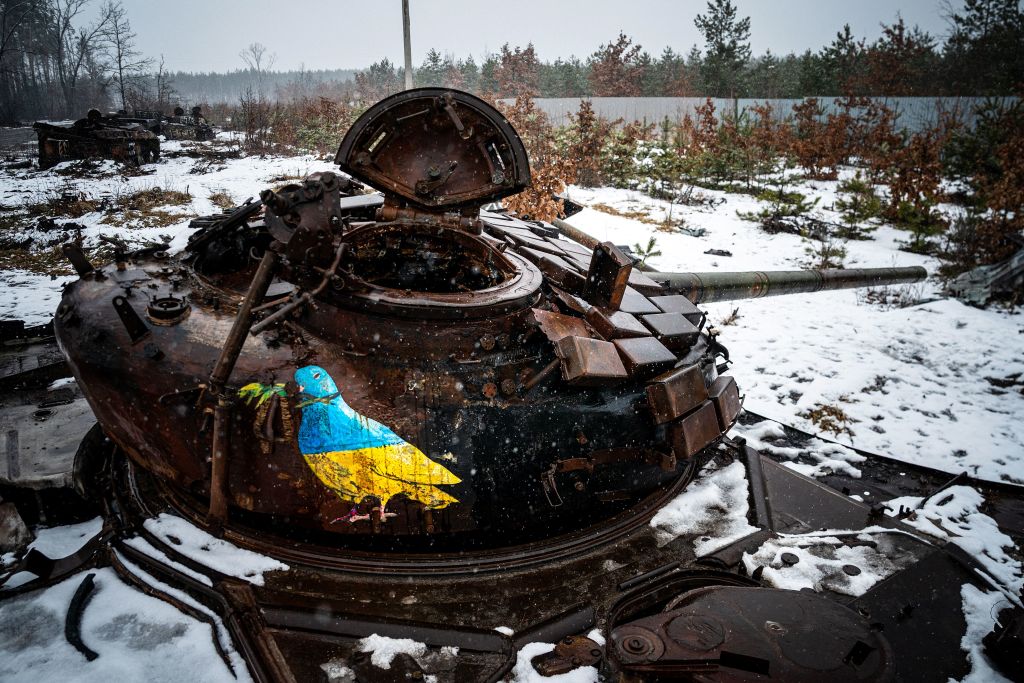What if Putin’s plan for a quick victory in Ukraine had succeeded?

Russian President Vladimir Putin hasn’t met any of the strategic objectives he alluded to when he launched his full-scale invasion of Ukraine a year ago. In fact, no reasonable person can deny that the war so far has been a complete debacle for Russia.
Still, it’s worth considering the counterfactual. What if Russian forces hadn’t bungled the invasion? Where would we be now if the Ukrainian resistance had collapsed, or if the West had responded not with unity but with confusion and disarray?
Through quick, decisive action by special forces—and perhaps with the help of collaborators on the ground—Russia would have gained control of Kyiv within a day or two, proceeded to install a puppet government and held victory parades. In this scenario, Ukraine’s duly elected president, Volodymyr Zelensky, most likely would have been murdered by Russian special forces or incarcerated after a swift trial. At best, he would be leading a government in exile from Warsaw or somewhere else.
Meanwhile, the flow of refugees fleeing the country would have been an order of magnitude larger than it was. There would now be perhaps 20 million Ukrainians scattered across Europe and the West, dwarfing all other recent global refugee crises combined.
Aside from a handful of rogue countries, no one would have recognised the puppet authorities in Kyiv. In due time, they would probably simply disappear as Ukraine was incorporated into Russia as a collection of new federal districts. Ukraine as a political entity would have ceased to exist, returning to the status that it held under the Russian imperialism of the 19th century—which seems to be Putin’s model. Still, most of the rest of the world would have continued to recognise a Ukrainian government in exile, and many would be prepared to lend it support for more or less open military operations against the Russian occupiers.
The Russian effort to control Ukraine would have been exceedingly brutal. Judging by what happened in Bucha, Irpin and many other Russian-occupied towns, there would have been summary executions of many thousands—perhaps even tens of thousands—of Ukrainian politicians, journalists, local officials and others. This isn’t merely hypothetical: Russia already had long lists of Ukrainian officials drawn up before it launched the invasion.
Tens—or hundreds—of thousands of other Ukrainians would have been sent to so-called filtration camps, where they would have been subject to interrogations, torture and brutal treatment by Russian security forces. In many cases, children would be separated from their parents and sent to Russia to have their Ukrainian heritage expunged through re-education. Again, we know this because it is precisely what has happened in the few territories that Russia currently occupies.
In this situation, the sanctions against Russia would probably be even more extensive than they already are, because it would have been much more difficult for countries like India and South Africa to justify their continued trade with the aggressor. Also, the direct costs associated with occupying Ukraine would have been enormous. Last September, Putin ordered a massive mobilisation of Russian conscripts following the failure of the initial invasion—and evidently is mobilising many more for a possible spring offensive. But that would have been necessary even in the event of a successful operation, just to hold the country. With Ukrainians continuing to wage an insurgency, maintaining the Russian army’s morale would have grown only more difficult with time.
For the rest of Europe—especially those countries nearer to Ukraine—a successful Russian invasion would have introduced the imminent threat of further aggression against Moldova, Poland or the Baltic states. All these countries would be on full wartime footing, and a substantial number of US and other European forces would be permanently deployed to bolster their defences. The remaining Ukrainian forces would have retreated across the borders with Poland and other neighbouring countries, where they would remain fully determined to continue the fight. Europe today would be on the verge of a much, much larger war.
Putin’s decision to invade was truly insane. His war of aggression has been a massive strategic failure, and it’s bound to get even worse for him. But this is no time for complacency or self-congratulation. Had Russia succeeded, it would have been an unmitigated disaster from every conceivable point of view. Continued support for Ukraine’s defence of its freedom is essential to European security and to the preservation for all people of the bedrock principle of international law—the prohibition of aggressive war.